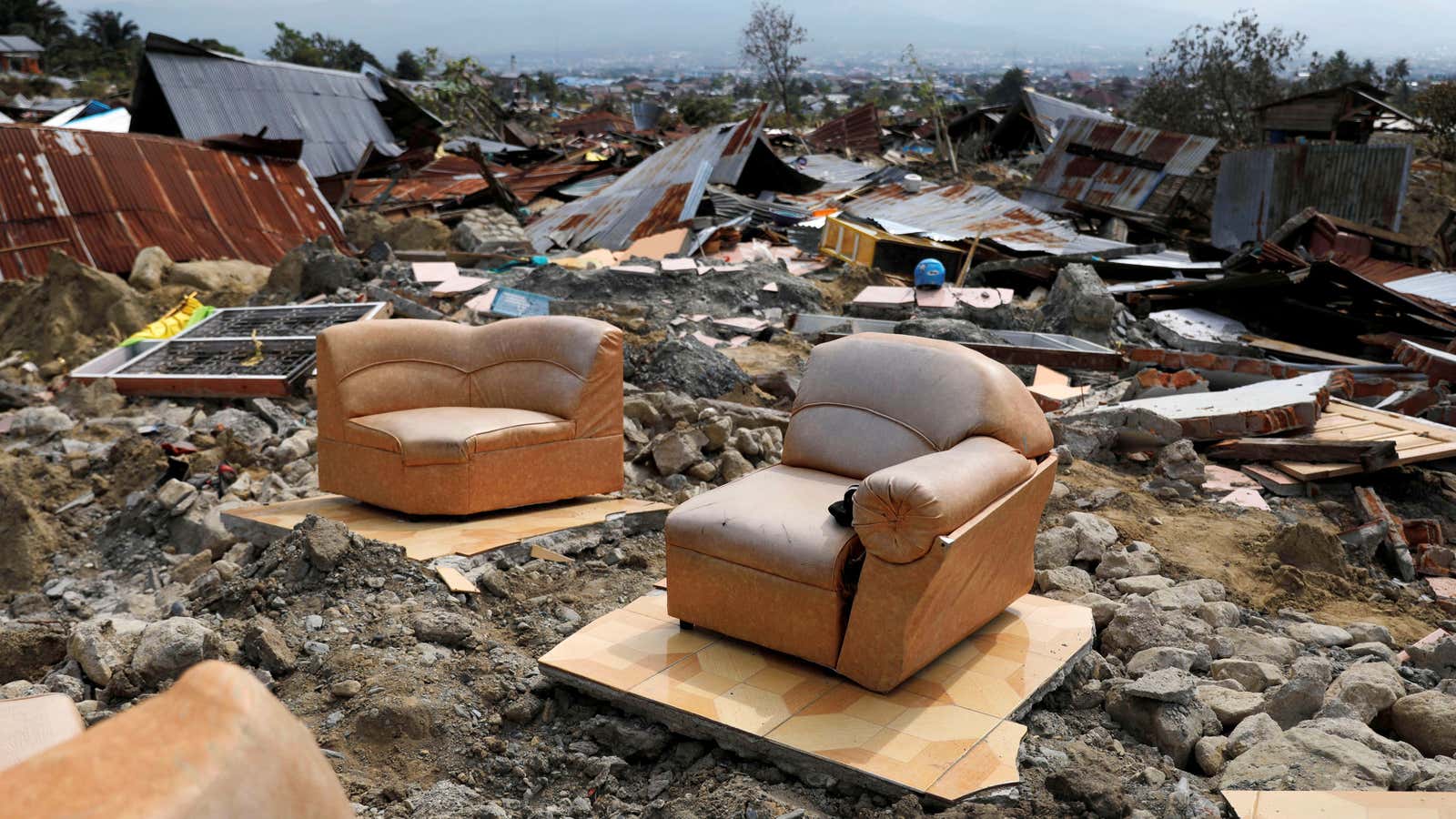Last Friday, Indonesia’s Sulawesi island was hit by a 7.5-magnitude earthquake, which triggered a tsunami that washed away homes, and turned the ground to liquid mud in parts. The official death toll has risen to 1,400, and disaster response teams are still uncovering bodies from rubble around Palu, a city of 350,000 near the quake’s epicenter, where thousands are now homeless.
At the same time, authorities are trying to keep ahead of rumors spreading on social media that risk sowing panic.
On Thursday, police said that they had arrested eight people in recent days for spreading false information, known in Indonesia as “hoax news.” The false information included Facebook posts predicting another major earthquake imminently. Other false reports included one on the supposed death of the mayor of Palu, and another that said a major dam on the island had cracked and was about to burst. Other images and accounts exaggerated the seriousness of a volcanic eruption on Sulawesi this week. These false stories appear to have spread primarily through social media,
Indonesia has been trying to deal with fake news that has been blamed for stirring up ethnic and religious tensions as the country gears up for national elections next year. Earlier this year, Indonesian authorities arrested a number of people in connection with what they believe was an operation program designed to destabilize the government and political processes by spreading fake news through social media. The country has more than 100 million Facebook users, as well as millions of Twitter and Instagram users.
Just a day before the earthquake, the government announced plans for weekly press conferences to debunk fake news stories. A team of 70 people in the communications ministry will be tasked with identifying these stories, according to the Guardian.
Fake news has been a problem across Southeast Asia, with many blaming false information for fomenting hatred of Myanmar’s Rohingya minority. Yet efforts to deal with the problem have caused misgivings as well. Malaysia repealed a controversial anti-fake-news law earlier this year, after significant criticism that the law had limited free speech and freedom of the press, rather that deal effectively with misinformation. Singapore is currently mulling a similar law, despite rights groups raising similar concerns about the likely issues it would cause and its likely inability to actually stop fake news from spreading.
